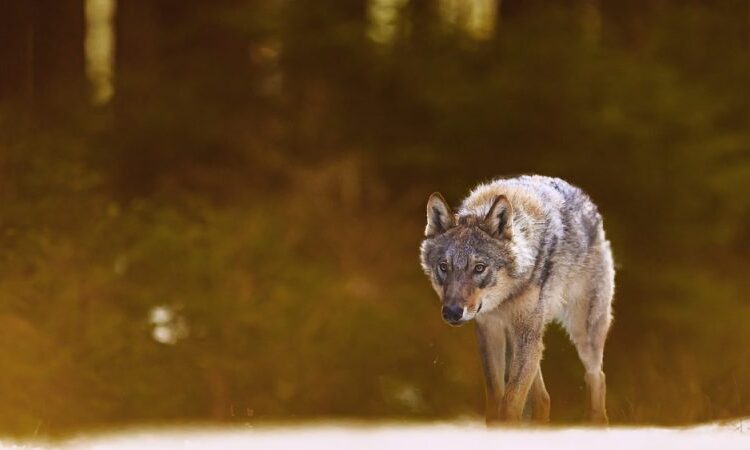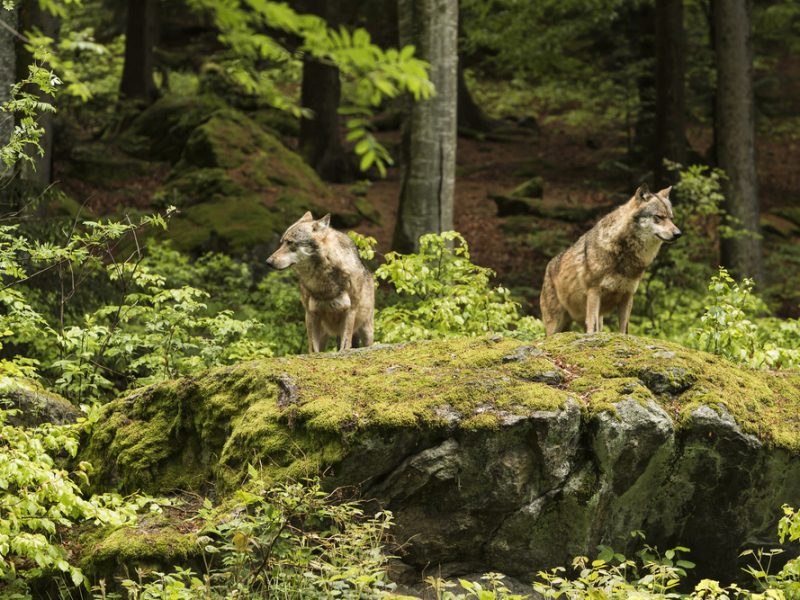
In a ruling published on Thursday (11 June), the EU Court of Justice (CJEU) clarified that economic reasons per se, such as preventing losses of livestock, were not sufficient to allow hunting of wolves, at a time when EU member states are discussing lowering the protection for the species.
The wolf’s protection within the Union is through the EU Habitats Directive and the Bern Convention, the latter allowing for derogations from the no-hunt principle in cases of extreme urgency.
The ruling stems from a case raised in Austria. While the EU law prohibits hunting wolves, the Land of Tyrol granted a temporary bypass from the ban between 29 July to 31 October 2022, allowing the hunting of a particular wolf – identified as 158MATK – after the animal had killed around 20 sheep, to prevent losses for livestock farmers.
National NGOs challenged the local authorities’ decision in court, and the Regional Administrative Court of Tyrol called upon the CJEU to clarify the limitations to derogations for the hunting ban.
A derogation as such for economic reasons can be granted only if the wolf population is at “a favourable conservation status,” at local and national level, “which is not the case in Austria,” stated the CJEU in their ruling published on Thursday (11 July).
“In the case of strictly protected species such as the wolf, milder measures such as herd protection take precedence – shooting should only be a last resort,” WWF Austria reacted on X on Thursday.
The association announced that the ruling was “good news for the conservation of the species.”
According to NGOs, this decision could set a precedent for states that engage in this type of derogation, such as France, which recently granted special permissions to facilitate shooting.
The conditions are not met
The CJEU had not found “any factor” that could “affect the validity of the strict protection of wolves in Austria,” they stated.
According to the EU judges, some of the conditions to adopt the derogation are not met, such as being able to attribute a large proportion of the damage to the wolf alone, since indirect damage may result from “the abandonment of farms and the reduction in the total number of herds.”
Wolf hunting, the press statement added, can be an option only if “there is no satisfactory alternative,” such as the erection of fences.
Finally, all protection measures “must be balanced with the general objective of maintaining or restoring a favourable conservation status of the wolf population,” says the CJEU.
EU Council divided
In view of the increasing number of attacks in mountain pastures, the European Commission proposed in 2023 to lower the level of protection afforded to the carnivore from “strictly protected” to “protected”, implying larger opportunities for hunting wolves in the EU.
But member states are still struggling to reach an agreement on this issue.
At the Council of Agriculture Ministers on 27 May, Austria called for rapid adoption of the proposal. Romania, Sweden, Slovakia, Finland, Italy, the Czech Republic and Lithuania also called for a rapid vote on the Commission’s proposal.
The dossier, however, is also under the competence of EU environment ministers.
In discussions held so far, Spain, Portugal, Ireland, Luxembourg and Germany asked for more data on the situation of the species, before continuing work in Council.
The Hungarian presidency wants to speed up decision making.
“I can confirm that the Hungarian presidency intends to continue with this file to make progress during our presidency,” said János Bóka, Hungary’s minister for European Union affairs, at a press conference on Wednesday (10 July).
[Edited by Angelo Di Mambro and Rajnish Singh]








